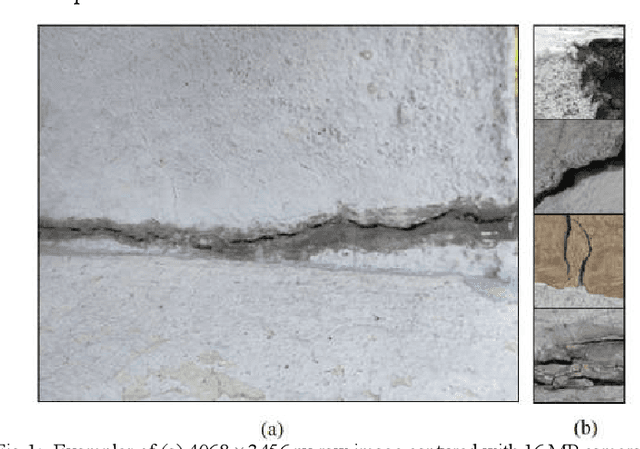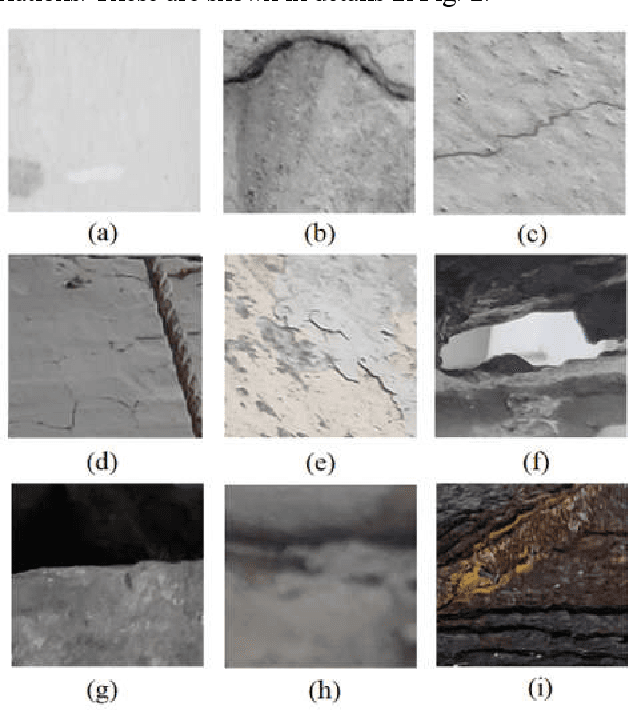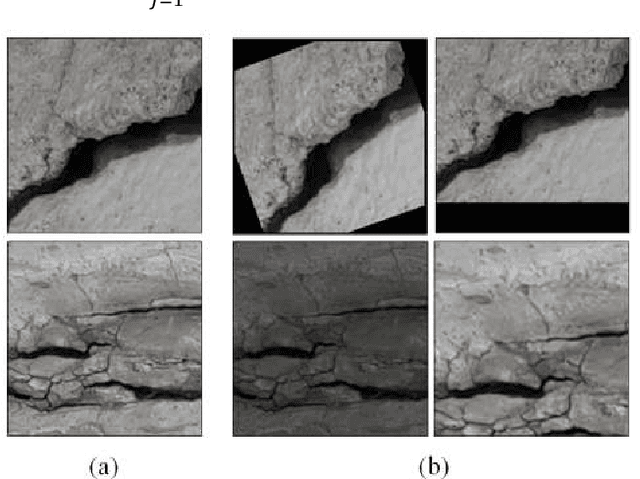Babloo Kumar
Detection Of Concrete Cracks using Dual-channel Deep Convolutional Network
Sep 22, 2020



Abstract:Due to cyclic loading and fatigue stress cracks are generated, which affect the safety of any civil infrastructure. Nowadays machine vision is being used to assist us for appropriate maintenance, monitoring and inspection of concrete structures by partial replacement of human-conducted onsite inspections. The current study proposes a crack detection method based on deep convolutional neural network (CNN) for detection of concrete cracks without explicitly calculating the defect features. In the course of the study, a database of 3200 labelled images with concrete cracks has been created, where the contrast, lighting conditions, orientations and severity of the cracks were extremely variable. In this paper, starting from a deep CNN trained with these images of 256 x 256 pixel-resolution, we have gradually optimized the model by identifying the difficulties. Using an augmented dataset, which takes into account the variations and degradations compatible to drone videos, like, random zooming, rotation and intensity scaling and exhaustive ablation studies, we have designed a dual-channel deep CNN which shows high accuracy (~ 92.25%) as well as robustness in finding concrete cracks in realis-tic situations. The model has been tested on the basis of performance and analyzed with the help of feature maps, which establishes the importance of the dual-channel structure.
 Add to Chrome
Add to Chrome Add to Firefox
Add to Firefox Add to Edge
Add to Edge